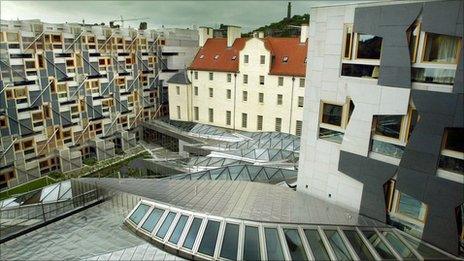Russia presents Ushakov Medals to WW2 Arctic Convoy veterans
- Published
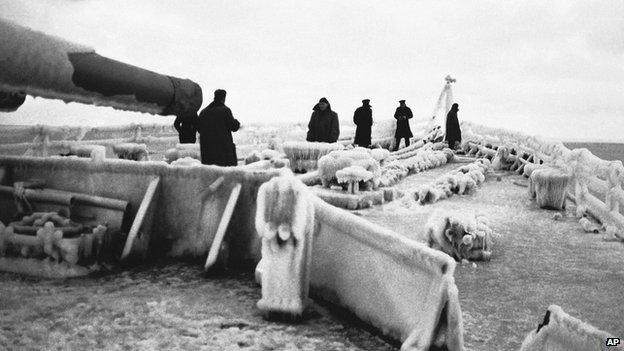
The convoys often operated in freezing conditions
Russia is honouring Scottish veterans of the World War Two Arctic Convoys at a ceremony in Glasgow.
The country's Consul General will present more than 40 Ushakov Medals to surviving veterans and representatives of those who have died.
Other ceremonies for veterans are being held in Edinburgh, Aberdeen and Inverness before Remembrance Sunday.
From 1941 to 1945, Allied ships sailed from Scotland and Iceland to Russia to supply it with food and weapons.
More than 3,000 seamen lost their lives to the freezing conditions and attacks by German submarines and aircraft.
'Dangerous missions'
In total, 214 Ushakov Medals are being presented by the Consul General Andrey Pritsepov to veterans or their families in Scotland.
The Consul General said: "The Ushakov Medal is one of Russia's most important naval awards, presented only to those who demonstrated courage in sea warfare.
"These medals are well-deserved by the Scottish veterans of the Arctic Convoys who sailed alongside our fathers and grandfathers on extremely dangerous missions and returned home victorious against all odds."
The ceremony at Glasgow City Chambers on Friday is being hosted by Lord Provost Sadie Docherty.
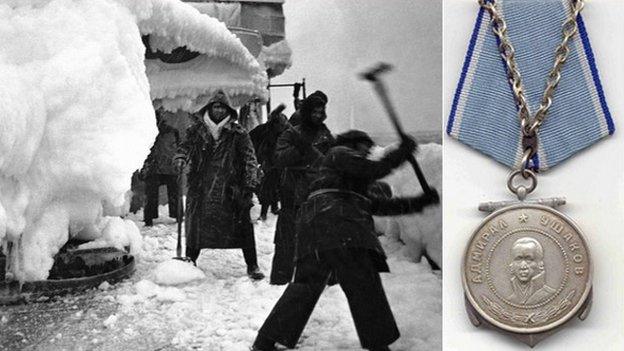
Veterans of the Arctic Convoys are being awarded the Ushakov Medal by Russia
She said: "In this centenary year of the outbreak of the First World War, we are remembering the fallen in all conflicts and the bravery of those who defend our shores and freedoms.
"Those who served in the notorious Arctic Convoys have a special place in history and we owe them a huge debt for their bravery and tenacity.
"I know it means a great deal to the veterans and their families that they are finally being honoured in this fashion for their role in maintaining a vital naval lifeline that helped Britain and her allies win the war."
The medal is named after Fyodor Ushakov, an 18th Century naval commander who never lost a battle and the patron saint of the Russian navy.
The medal was originally established in 1944 for those who demonstrated courage and prowess in sea warfare.
It is now awarded to veterans "for personal courage and valour shown during World War Two while participating in the Arctic Convoys".
Convoys left the Clyde and Loch Ewe in Wester Ross during the effort to supply Russia with food and weapons from 1941 to 1945.
The British Merchant Navy, along with Russian, US, Canadian, Norwegian and Dutch merchant fleets, were involved.
In total, 78 convoys sailed to and from Russia under escort from Allied warships.
- Published7 November 2014
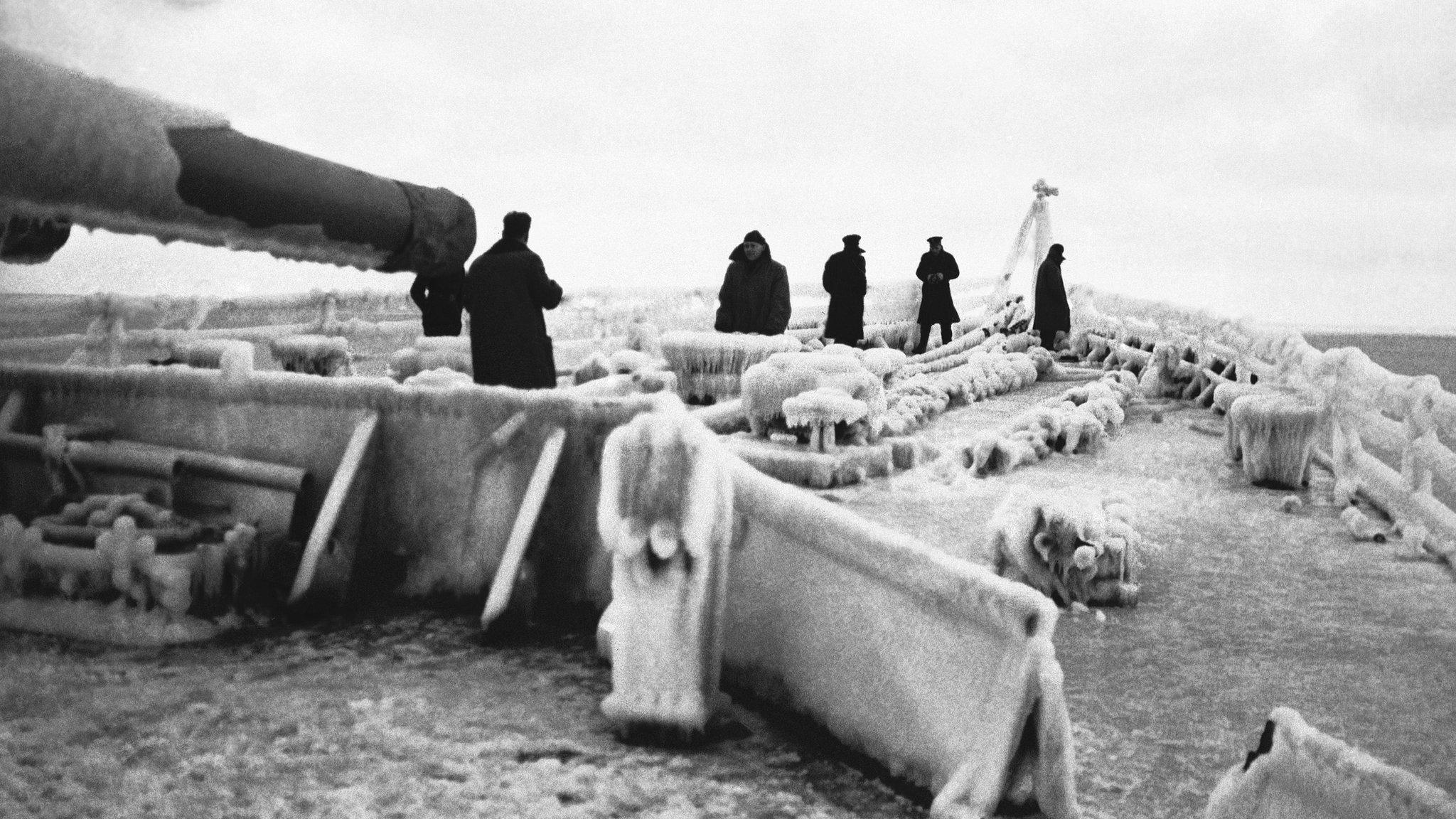
- Published28 August 2012
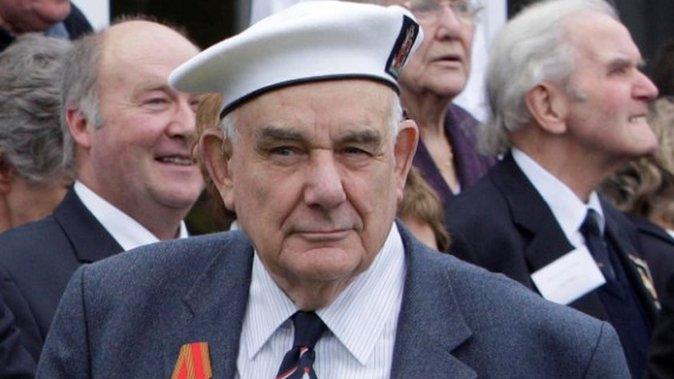
- Published14 September 2011
